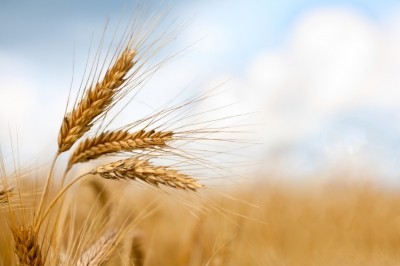Bite-size Milling & Grains news
Mexico bans GM corn, UK winter cropping area rebounds, Agspring acquires Gen Mills’ grain operations, global flour exports tick up

Mexico bans GMO corn
Mexico has issued a ban on genetically modified corn effective immediately, preventing companies such as Monsanto and DuPont Pioneer from planting or selling GM corn within the country’s borders, a judge ruled last month. The decision came nearly two years after the Mexican government put Monsanto’s GE corn on hold, citing the need for more tests.
According to Environmental Food and Justice, Judge Jaime Eduardo Verdugo J. of the 12th Federal District Court for Civil Matters of Mexico City ruled that the genetically engineered corn posed ”the risk of imminent harm to the environment.”
He ordered that Mexico’s Secretary of Agriculture and the Secretary of Environment and Natural Resources (SEMARNAT), which is equivalent to the US Environmental Protection Agency, to immediately “suspend all activities involving the planting of transgenic corn in the country and end the granting of permission for experimental and pilot commercial plantings.”
The ruling means Monsanto and other biotech companies must halt all activity in the country while collective action lawsuits initiated by citizens, farmers, scientists and other concerned parties work their way through the judicial system.
Winter cropping area in England and Wales up 14% for 2014 harvest: HGCA
Winter cropping in England and Wales rebounded in 2014, with 2.976 million hectares (ha) planted to wheat, winter barley, oats and oilseed rape by Dec. 1, 2013, 14% more than the total area of these crops harvested in 2013, according to the ADHB/HGCA Winter Planting Survey.
Favorable fall weather conditions facilitated the increase in winter plantings—a stark contrast to the conditions during the winter planting window for harvest 2013.
Wheat plantings as of Dec. 1 in England and Wales are estimated at 1.815M ha, representing an increase of 19% from the total area harvested in 2013, even before any late winter or spring wheat plantings.
Winter barley plantings as of Dec. 1 is estimated to be 41% higher than was harvested in 2013, at 0.369M ha. Though the total barley area will depend on spring planting levels, this figure suggests the highest level of winter barley planting in England and Wales since 2003.
The oat area planted by Dec. 1 is estimated at 89,000 ha, a fall of 38% from the total oat area (winter and spring crops) harvested in 2013. While winter plantings in England and Wales are lower, the final picture is not yet clear as spring plantings are important to the UK total, especially in Scotland and northern England.
Oilseed rape plantings also remain strong in England and Wales, with an estimated 0.703M ha planted by Dec. 1. This represents a 3% increase over the total (winter and spring) oilseed rape area harvested in 2013.
“The rebound in winter planting represents a return to more ‘normal’ cropping after the extremes of the last two seasons, which has been expected by the market,” AHDB senior analyst Helen Plant said. “The higher wheat area increases the likelihood of the UK being able to return to being a net exporter of wheat in 2014/15. However, weather conditions during the rest of the growing season will be important in determining the quality and yields, and thus the UK’s export potential next marketing season.”
This survey is based on 2,771 responses from a representative sample of farm businesses.
Agspring acquires Gen Mills’ Idaho grain biz
Kansas City, MO agribusiness firm Agspring has signed a definitive purchase agreement to acquire General Mills’ grain operations in Idaho. The terms of the deal, which is expected to be completed by the end of May 2014, were not disclosed.
Agspring will focus on improving efficiency and expanding operations including increasing elevator storage and handling capacity in Idaho. Operations will continue to be managed locally, while Agspring will provide corporate support, national supply chain planning and financial backing.
“We believe that the addition of this team will play a critical part in our expanding supply chain network,” said Brad Clark, president of Agspring. “General Mills has done a tremendous job in building a unique value-added system in partnership with seed suppliers, producers and customers, all with an increased focus on sustainability. We look forward to continuing that success and position the company to better serve our partners to feed a changing world.”
IGC forecasts slight rebound in global wheat flour trade
The International Grains Council is forecasting a slight rebound of 1% for world trade in wheat flour in the 2013-14 crop season, lagging the projected rise of 4%.
Total global flour exports in the current crop year were 12.6 million tons of wheat equivalent, compared with 12.48 million tons in the previous season. At the same time, the current pace lagged well behind the record of 14.5 million tons in 2011-12 and was slightly behind 12.6 million tons in 2010-11.
Primarily accounting for the recovery of flour export trade was a surge in shipments from Kazakhstan, to a total of 3 million tons, compared with 2.36 million in 2012-13. That restored Kazakhstan to its leading position as a global flour exporter, even though its outgo in the current crop year fell behind the 3.7 million it shipped in 2011-12. Improved availability of milling wheat was credited with spurring Kazakhstan’s flour exports in the current season, even though Indonesia, a major flour importer, continued its import tariff means to check takings.
Both Uzbekistan and Afghanistan increased flour imports in response to expanded offerings from Kazakhstan. Uzbekistan retained its role as the world’s largest flour importer, expected to take 1.4 million tons, compared with 1.36 million tons in 2012-13 and 1.9 million tons in 2011-12. Afghanistan’s flour imports were forecast to reach 1.3 million tons in wheat equivalent, compared with 1.17 million tons in 2012-13.







